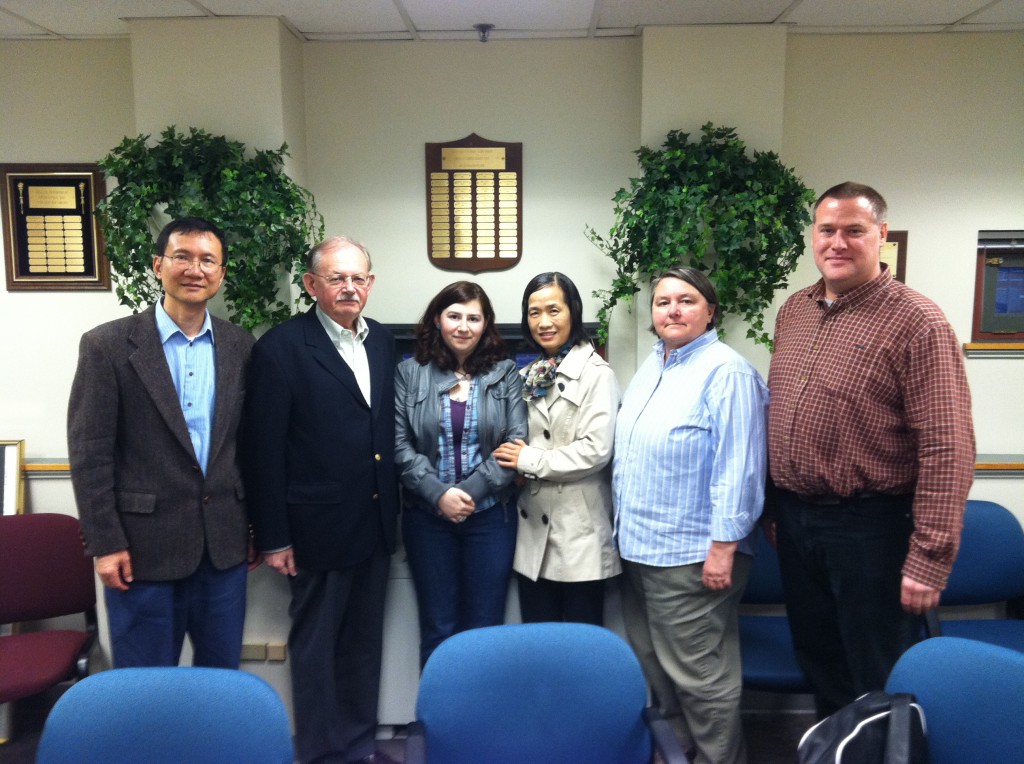On 3rd April, Chris Dakin (Humanities) gave a CTE workshop titled “Is it He or Ho? A simple introduction on how to pronounce difficult names” to a group of interested faculty and administrative staff.
(Hint: He and Ho are both spellings of the Chinese last name 何)
Some of the highlights that I got from the workshop are:
1. There is a limited number of Chinese last names, and most people will have these 30 names.
2. How a Chinese character is spelt depends on where one comes from. For example, a name like Wong shows that one comes from Southern China, and it can be either the character 王 or 黃. However, if that person comes from another part of China, the name will be Wang for 王and Huang for 黃.
3. The last name comes first, and then the first name. The Chinese name “Chan Kong-sang” shows that the last name is Chan, and the first name is Kong-sang. However, most students observe the American convention and write their first name before the last one, such as “Kong-sang Chan”.
4. Sometimes students collapse the two characters into one: so Chan Kong-sang can also be written as Kongsang. Sometimes they will write KongSang to denote there are two characters.
5. Some Chinese last names have two characters: Sima (司马, 司馬), Zhuge (诸葛, 諸葛), Ouyang/Auyeung (欧阳, 歐陽). However, those last names are rare.
6. It is usual for a Chinese to have a two-character first name. For example, in my case, my Chinese name is Pui Yin (沛然). So Pui is not the first name, and Yin is not the middle name. There is no middle name for Chinese.
7. It is also rather odd to call Chinese students by their Chinese first names because the first names are reserved for people who are close, such as parents, spouses, and very close friends.
8. It is not too formal to address a Chinese by his/her full name. In terms of formality, Micky Lee is the most formal, then Lee Pui Yin (李沛然) then Micky, and I’d rather not want colleagues to call me Pui Yin (沛然).
9. For students from Hong Kong, it is very usual for them to have an English name. It is not a name that we adopt when we come to the US, we have had this name since we were born or since we were in kindergarten.
10. A good thing to remember though is that we can always ask students how they like to be called. (An example given in the workshop is that a student wants to be called Piggy).
11. Chinese women do not change their names after married. So a married woman with the maiden name Lee is called Ms. Lee. If her husband is a Chen, then she can also be called Mrs. Chen. Very rarely, they will add their husband’s last name in front of theirs, such as Chen Lee Pui Yin.
Useful links to online resources for the minds that want to be challenged:
Online resource for pronouncing Mandarin Chinese:
1. http://mandarin.about.com/od/pronunciation/a/How-To-Pronounce-Mandarin-Chinese.htm
– this is a good basic starting point for a quick listen to the initials and finals.
– put this in your favorites tab for quick reference.
Resources on Chinese names:
1. http://en.wikipedia.org/wiki/Chinese_name
– this is a good overview of the background and history of names in Chinese culture. It also has a decent explanation of pseudonyms and other interesting facts that might help in figuring out names.
2. http://en.wikipedia.org/wiki/List_of_common_Chinese_surnames
– This is a very concise and usable resource. Keep this handy.
3. http://www.monash.edu.au/lls/China/teaching/names.xml
– Monash University in Australia has some good resources for many topics related to Asian studies. The following link is specifically related to names.
Here are some studious learners:





